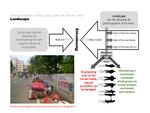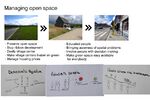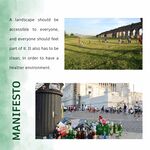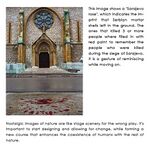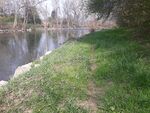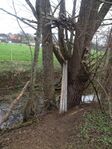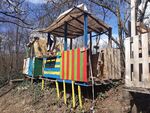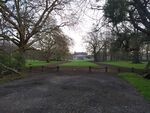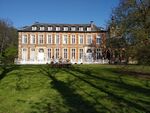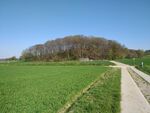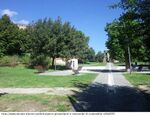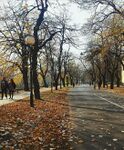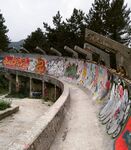LED Online Seminar 2019 - Working Group 6
--> Back to working group overview
Dear working group members. This is your group page and you will be completing the template gradually as we move through the seminar. Good luck and enjoy your collaboration!
Assignment 1 - Reading and Synthesizing Core Terminology
- You can read more details about this assignment here
- Readings are accessible via the resources page
Step 1: Your Landscape Democracy Manifestoes
Step 2: Define your readings
- Please add your readings selection for the terminology exercise before April 24:
A: Landscape and Democracy -Foysal-Burckhardt, Lucius (1979): Why is landscape beautiful? -Chiara - IFLA EU Landscape democracy resolution
B: Concepts of Participation -Foysal- Day, Christopher (2002): Consensus Design -Anisa - Hester, Randolph (1999): A Refrain with a View -Chiara - Burckhardt, Lucius (1957): Urban Planning and Democracy in: Fezer/Schmitz (Eds.) Rethinking Man-made Environments (2012)
C: Community and Identity -Foysal- Welk Von Mossner, Alexa (2014): Cinematic Landscapes -Anisa - Spirn, Anne (2005): Restoring Mill Creek -Chiara - Hester, Randolph (2006): Design for Ecological Democracy, The MIT Press
D: Designing -Anisa - Hester, Randolph: Life, Liberty and the Pursuit of Sustainable Happiness
E: Communicating a Vision
Steps 3 and 4: Concepts Selection and definition
- Each group member selects three relevant concepts derived from his/her readings and synthesize them/publish them on the wiki by May 15, 2019
- Group members reflect within their groups and define their chosen concepts into a shared definition to be posted on the wiki by June 12, 2019.
- Other group members will be able to comment on the definitions until June 30, 2019
- Each group will also report on their process to come to a set of shared definitions of key landscape democracy concepts on the wiki documentation until July 12, 2019
Concepts and definitions
Author 1: Foysal
- Why landscape is beautiful?
The beauty of a landscape is abstract thinking of the human’s mind and it’s very person to person. So the quality and value of landscape change in every situation. It can be preset of own thinking or a collection of elements what actually a reflection of human minds.
- Consensus Design
The main differences between democracy and consensus are, democratic solutions are come from majority’s mind by voting but the consensus is a process where we can find a reflection of each and every member’s mind of a society. For making a decision human need to think about the future by developing the current condition and by fixing goals. It not about to getting attached only with emotions.
- Cinematic Landscape
A space where the narrative of a film finds its identity. It includes: -Competitive area of filming -Process of framing the images. In the example film its shows how people of Louisiana wetlands suffer and survive from a hurricane. It derives that anthropogenic climate changes are not the only cause for a natural disaster. Man-made river control structures also play a big role in it.
Author 2: ...
- ......
- .......
- .......
Author 3: ...
- ......
- .......
- .......
Author 4: ...
- ......
- .......
- .......
Step 5: Reflection
Step 6: Revised manifestoes
- please look again at your initial manifestoes and update them with any new aspects/prespectives you have taken up during this seminar
Assignment 2 - Your Landscape Symbols
- You can read more details about this assignment here
Landscape Symbols Author 1: Foysal
Landscape Symbols Author 2: Viktor
The abbey’s castle is part of a bigger and very old abbey. The abby is no longer in use, en so is this building. Now they made a cafe in this building and renovated the park around it. In the cafe they give work to people with social problems. It became a hotspot during summer to hang out en relax. 50° 53′ 8.99″ N 4° 32′ 56.77″ E
Landscape Symbols Auther 3: ...
Landscape Symbols Author 4: ...
The hillside where tens of thousands used to spend their Saturdays before the 1992-1996 siege of Sarajevo soon became “a symbol of aggression”. Trebević was the only place to breathe fresh air when the city was engulfed in fumes, but that all changed and the mountain became the enemy. Sarajevo hoped to put much of that past to rest and there was indeed a palpable sense of optimism that arose with the reopening.
This promenade on the Miljacka riverfront, lined on both sides with thick rows of linden trees is closed for the traffic every day after 5:00 p.m. and on weekends. It allows its users to turn it into whatever they want and need it to be, whether you're walking your dog, roller skating or running marathons. It is a place that gathers everyone in their leisure time and makes up for a catalyst of all activities.
Assignment 3 - Role Play on Landscape Democracy "movers and shakers"
- You can read more details about this assignment here
Assignment 4 - Your Landscape Democracy Challenge
- You can read more details about this assignment here
- Each group member will specify a landscape democracy challenge in his/her environment
Landscape Democracy Challenge 1
- Give a title to your challenge
- Yourname challenge 1.jpg
caption: why did you select this case?
- Yourname challenge 2.jpg
caption: what is the issue/conflict (1)
- Yourname challenge 3.jpg
caption: what is the issue/conflict (2)
- Yourname challenge 4.jpg
caption: who are the actors?
Your references:
- ...
- ...
Landscape Democracy Challenge 2
- Give a title to your challenge
- Yourname challenge 1.jpg
caption: why did you select this case?
- Yourname challenge 2.jpg
caption: what is the issue/conflict (1)
- Yourname challenge 3.jpg
caption: what is the issue/conflict (2)
- Yourname challenge 4.jpg
caption: who are the actors?
Your references:
- ...
- ...
Landscape Democracy Challenge 3
- Give a title to your challenge
- Yourname challenge 1.jpg
caption: why did you select this case?
- Yourname challenge 2.jpg
caption: what is the issue/conflict (1)
- Yourname challenge 3.jpg
caption: what is the issue/conflict (2)
- Yourname challenge 4.jpg
caption: who are the actors?
Your references:
- ...
- ...
Landscape Democracy Challenge 4
- Give a title to your challenge
- Yourname challenge 1.jpg
caption: why did you select this case?
- Yourname challenge 2.jpg
caption: what is the issue/conflict (1)
- Yourname challenge 3.jpg
caption: what is the issue/conflict (2)
- Yourname challenge 4.jpg
caption: who are the actors?
Your references:
- ...
- ...
Your Democratic Change Process
- Add Title
- Your Democratic Change Process Slide1.jpg
caption: ...
- Your Democratic Change Process Slide2.jpg
caption: ...
- Your Democratic Change Process Slide3.jpg
caption: ...
- Your Democratic Change Process Slide4.jpg
caption: ...
Reflection
- ....
- ....
- ....
Conclusion:
- ....
- ....
- ....
Your references
- ...
- ...
- ...
